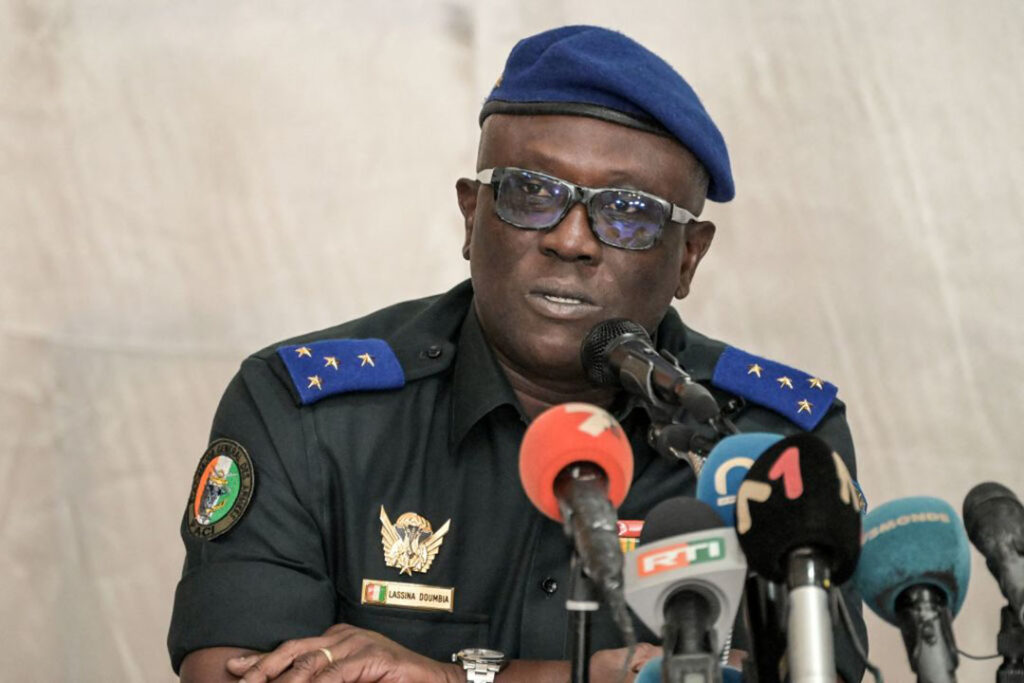ADF STAFF
The leaders of Mali’s ruling junta recently met with a high-level delegation of West African leaders seeking the release of 46 Côte d’Ivoire Soldiers held in Mali since July, a reflection of Mali’s increasingly strained relationship with its neighbor to the south and with the international community.
The meeting with junta leader Col. Assimi Goïta by Ghanaian President Nana Akufo-Addo, Gambian President Adama Barrow, and Togolese Minister of Foreign Affairs Robert Dussey produced no change in the status of the peacekeepers, whom Mali has accused of weapons trafficking and conspiracy to overthrow the junta-led government.
Analyst Alec Smith, writing for the website Grey Dynamics, sees the relationship between Mali and the Côte d’Ivoire continuing to degrade over the coming months. The current tensions between the two countries began after the junta announced it was delaying a return to democracy until 2024, according to Smith.
The Ivoirian Soldiers now held hostage arrived in Bamako to support MINUSMA, the United Nations Multidimensional Integrated Stabilization Mission in Mali. Ivoirian troops have served in MINUSMA for many years.
The story has become a national preoccupation in Côte d’Ivoire where, last month, relatives of the detained Soldiers and hundreds of demonstrators took to the streets to demand action.
“They must free our children. These are just simple Soldiers, they are not criminals. They have nothing to do with Malian politics,” Assetou Kone, the mother of a detained Soldier, told africanews.
The junta has shown growing hostility toward MINUSMA even as it works more closely with mercenaries from the Russian-backed Wagner Group.
A delegation from ECOWAS, the Economic Community of West African States, was dispatched after Côte d’Ivoire requested a special meeting of the regional bloc to help secure the release of the peacekeepers, who were arrested when they arrived at the airport in Bamako on July 10.
Three female Soldiers were released in early September after mediation by Togo.
The junta initially said it would not meet with ECOWAS representatives. It said the issue was strictly between Mali and Côte d’Ivoire.
The junta has accused the Ivoirian forces of being mercenaries and of planning to overthrow the military government, which came to power after coups in 2020 and 2021.
Ivoirian Minister of Communications Amadou Coulibaly said Mali’s military leaders, some of whom are special forces, know all too well how to overthrow a government.
“It’s not done by tourists who arrive at an airport, collect their passports to go and fill in police paperwork,” he said at a press briefing.
In the meantime, the Malian junta is openly working with mercenaries from the Wagner Group, which has participated in multiple attacks against civilians in the northern regions of the country. Civilian deaths have doubled since Wagner entered the country in early 2022.
The junta’s suspicion of the Ivoirian Soldiers reflects its growing hostility toward other peacekeeping forces in the country. It briefly suspended peacekeeping rotations after arresting the Ivoirians. It has banned all aircraft except Russian fighter jets from its northern airspace, effectively denying MINUSMA air support in the region.
Because of that hostility, several countries, including Sweden, Egypt, and Benin, have either left the mission or announced their plans to do so in the near future.
Mali has offered to return the peacekeepers in exchange, in part, for Côte d’Ivoire turning over political dissidents believed to be Karim Keïta, the son of former Malian president Ibrahim Boubacar Keïta, and Tiéman Hubert Coulibaly, former minister of defense and foreign affairs under Keïta, according to africanews.com.
Côte d’Ivoire has refused to do so, describing the demand as blackmail. It says it is prepared for lengthy negotiations to free the peacekeepers.
“Our Soldiers are not mercenaries but hostages,” Coulibaly said.

